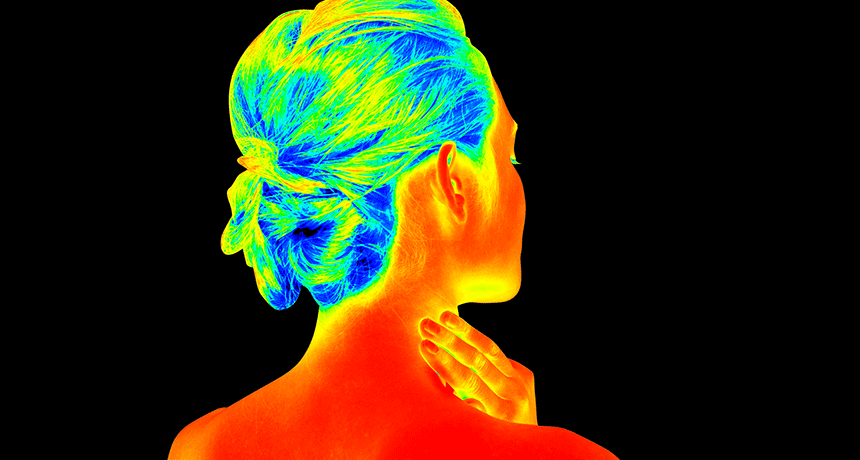Physics
-
 Physics
PhysicsScientists Say: Infrared
Infrared light belongs to a part of the spectrum that people can’t see. But this kind of light can be used to “see” the heat signatures of objects.
-
 Animals
AnimalsElectric currents in the air may cue ‘ballooning’ spiders on when to take off
Some spider species float on the breeze using a parachute of silk. A new study suggests electrical charges in the air help spiders time these flights.
-
 Physics
PhysicsMars appears to have a lake of liquid water
A 15-year-old Mars orbiter has spotted signs of a salty lake beneath the Red Planet’s southern polar ice sheets.
-
 Physics
PhysicsAn active sun is a somewhat smaller sun
The sun grows and contracts a little over cycles lasting around 11 years, new data show. Changes in the strength of its magnetic fields may help explain this.
-
 Physics
PhysicsTo witness maximum pressure, peek inside a proton
Scientists used experimental data to estimate the pressures inside a proton. And surprise: Its mega-big — the greatest known!
-
 Physics
PhysicsThe plant world has some true speed demons
Some plants can fling, snap and hop at dizzying speeds. Such botanical gymnastics gives lie to the idea that all plants are slow, boring stick-in-the-muds.
By Dan Garisto -
 Chemistry
ChemistryThis plastic can be recycled over and over and over
A new kind of plastic is fully recyclable: Unlike current plastics, it breaks down into the exact same molecules from which it was made.
-
 Materials Science
Materials SciencePhotons map the atomic scale to help medicine and more
At a big lab outside Chicago, a gigantic beam of speedy electrons is helping researchers fight diseases, build better electronics and more.
-
 Materials Science
Materials ScienceLight-sensitive ‘ink’ gives 4-D printing more wiggle room
Many 4-D-printed objects can flex and change their shape. A new “ink” and printing method now gives them greater range of motion.
By Ilima Loomis -
 Ecosystems
EcosystemsSmall swimmers may play huge role in churning the seas
Hoards of migrating shrimp and krill can cause large-scale water movements in the ocean, a new study suggests.
-
 Materials Science
Materials ScienceNew black hair dye uses no harsh chemicals
Scientists have developed a new black-carbon-based hair dye. Instead of using damaging chemicals to dye hair, flexible flakes of carbon coat each strand.
-
 Animals
AnimalsIn a colony, king penguins act like a liquid
Is this a living liquid? King penguins move around within their colonies, clearing out some space, and then refilling it. That behavior resembles a liquid, scientists conclude.
By Dan Garisto